Richard Pooley
Α study in Arthur Conan Doyle
FEBRUARY 20, 2024

Mr Pooley is the step-great grandson of Sir Arhur Conan Doyle. He has visited over 55 different countries.He cannot remember meeting anyone who, if he mentioned Holmes, had not heard of him. Yet the name Conan Doyle is seldom known.
When he lived in Japan , he deliberately hid his connection to Doyle. He met quite a few people who told him that Sherlock really existed. He said ”I had to sit through many meetings with Japanese clients hearing how wonderful Holmes-san was (or Holmes-sama, indicating his God-like powers). I decided early on not to disabuse them.“.
I asked Mr. Pooley for this interview as profound Sherlockian. While preparing I discovered the Doyle phenomenon and I transformed into a Doylecian.
I strongly believe that a new fascinating movie character entitled “Sir” for the series “On her Majestie’s Secrete Service” could be based upon Doyle’s personality.
Or maybe a character portraying a gentleman or a lawyer fighting against vicious criminals.
Himself though, would probably enjoy the idea of being portrayed as professor of history that could solve any riddle.
Reading his biography, it is evident that Sir Arthur Conan Doyle was all this and many more (yes many many more.)
Besides of course being a writer and a doctor!
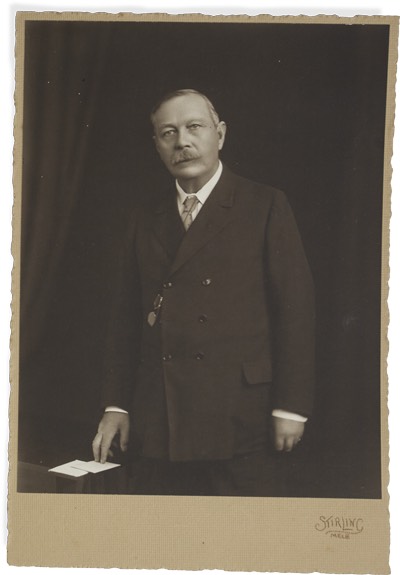
Let’s begin, Mr.Pooley you have said that sir Arthur Conan Doyle was embarrassed by the title of sir, and you’ve also mentioned in some interviews that you do not like to be called his great grandson. Yet this certain similarity and modesty makes you more of a great grandson than a great grandson. Also, the woman you loved as a grandmother was Doyle’s daughter. What do you remember with more emotion and nostalgia from her? What did she teach you?
Well, she herself, was head of the women’s Royal Air Force in UK. So she was really the only, one of Doyle’s 5 children who was a success in her own right. So she, she taught me, that, however famous your father, mother, and your relatives are, it’s up to you, to to make a success of your life. And, also she adored her father, and, I think I learned from her, that perhaps you shouldn’t always protect those you love, but, sometimes, accept they also make mistakes. But we’re all human. And she kind of made her father as though he was superhuman. I mean, he was a great guy, but he wasn’t superhuman.
This gives me a very nice assist to move to my next question. I read on the site that on your birthday, your grandmother gave you a book of her father and from then become your lifelong love affair with Sir Arthur Conan Doyle. So then came the duty of safeguarding his intellectual rights, and especially his name. How did you prepare for this mission? What stages of understanding this work did you go through to be ready to, you know, take on this complicated task?
Well, initially, she was just my step grandmother. I was very close to her. I listened, I half listened to all her stories, about the difficulties she had, with the copyright of all her father’s works, particularly in United States. Frankly, I wasn’t very interested. I loved much of his writing, but I have my own life to live. So, it wasn’t until after she died that I, about 10 years after she died, I was asked to take over running the Conan Doyle Estate.
And, we still own the copyright to Doyle’s works in United States. This was in 2008, 2007, if I remember. And so, you asked me what preparation I took. Well, I, I had some experience as I was the boss of my own business, a totally different business. So I knew how to run a business.
Well, I had very little knowledge of copyright law. But now, if you want to ask me about copyright law, intellectual property law, I I’m an expert. But then I really had to prepare for something new.
Really? Well, I guess after 16 years of experience, you must be really, good at this by now.
Well, I certainly, I’ve learned a huge amount. Yeah. And I also, I wrote a book about international negotiation, which was published in 2013.And, I can tell you that I’ve continued to practice negotiating, with publishers, with film studios, and other people.
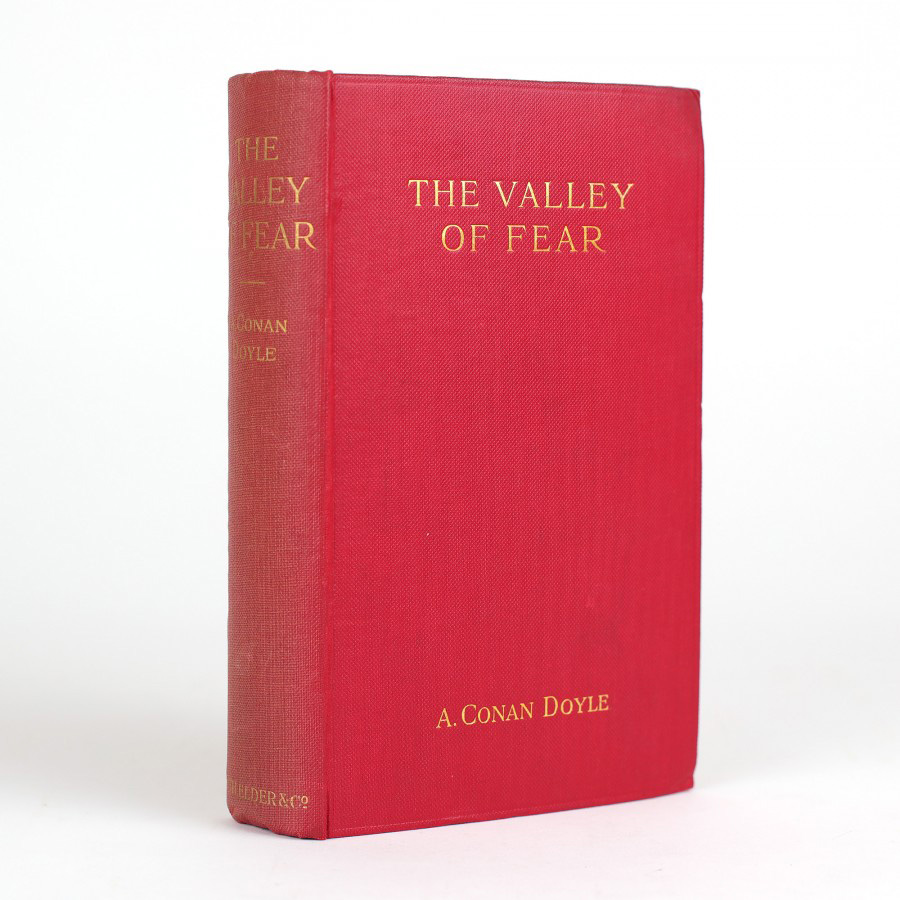
Alright. So, you talked about having your own business prior to taking over the estate. How did this experience, think it was a management trainer, if I have the term correctly, helped you out?
Do you think, you have some management training, this experience, intersects with your activities as a director of the estate? Does it help you with in a beneficial aspect?
Well, it helped me in the sense that I was running an international business. We headquartered in London, but we had operations in Tokyo and in Milan. And we ran training courses all over the world. And I had myself, run a subsidiary in Tokyo. So I had a lot of experience of running a business, and the Conan Doyle Estate is a business. So that was a great help. The great advantage of, managing the current Doyle estate is that we have no employees. And, the one thing I’m very grateful for, in my management training business is that, when I retired in 2012, I was no longer responsible for all these employees. But that’s a different story. I think you have less in your head in a way, but then you also have the burden of, you know, continuing the legacy of this great author and figure. So Yes. That’s right.
I know that now the copyright of Doyle’s works is in the public domain. Now it’s the opportunity to focus on him. I read on your website that your aim is to bring the world of Conan Doyle into a new audience to, you know, approach more people in an international scale. And on this occasion, I also read about the Holmes-fest. So, if I can have your thoughts on this festival, how it went, or what what was the impact that it had.
Okay. We’re taking the Holmesfest first. That happened the day before yesterday on Sunday. It was in Southsea, which is, part of Portsmouth on the south coast, not far off Southampton. And, of course, as you know, South Sea is where, Arthur Conan Doyle, established his first, doctor’s practice.
But, he wasn’t very successful in selling his medical skills, and so he had a lot of time on his hands. And that’s where he wrote the first Sherlock Holmes novel. So that’s why there was a Holmes festival Southsea. And it’s organized by a gentleman called Matt Wingate, who himself, he’s a publisher, but he’s also written a book, rather edited a book, consisting of stories that Conan Doyle wrote when he was in Southsea, along with his brother Mark.
Sorry. I forgot. Mark is a well-known actor. So, he was involved, and I was not there myself, but my, fellow director, Richard Doyle, another Richard (laughter)
Richard is the great nephew. Right. In fact, he looks he looks a bit like, his his uncle. And he was there with his wife, and he said it was a great success. Lots of acting, lots of, comedy. It was, all about Doyle, not just Sherlock Holmes. Okay. That’s good. But you asked me another question before. What was the other question?
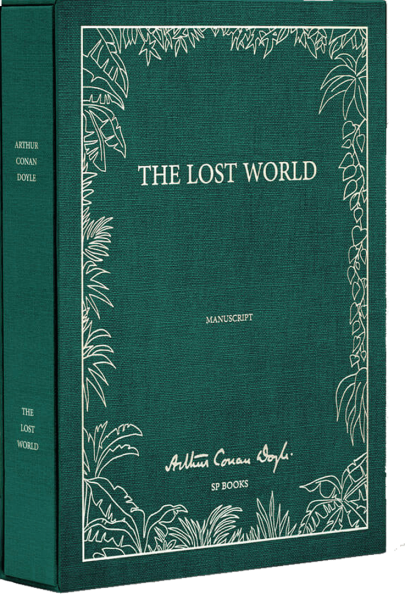
Of course. Doyle’s works are now in the public domain, and how can, institutions or festivals such as, the Homes Fest, help continue the legacy of this great man? Like, how do they work? And do you think that they are a good tool to approach young people or, broader and more difficult audiences and introduce them into this new world of Sherlock Holmes? And not only, because, from what I read, it’s not just about Sherlock Holmes.I know that Doyle really loved many other, characters he wrote about other than Sherlock.
Correct. He, himself, as I think you know, was not a great lover of his creation, Sherlock Holmes. But he wrote many other fantastically good stories. My own favorites and my step grandma’s favorite was The Adventures of Brigadier Gerard.
So, you’re quite right. The aim of the Conan Doyle estate is to make people aware of all the other characters he created. So we currently, are discussing with 1 US television company, very famous television company, to produce a series with different character. Professor Challenger, who is the main character in The Lost Room. And so this series in the States will probably come out next year or maybe the year after.
It’s been delayed by the act of right to strike in the US. In Britain, we have a television company who helps to produce, television series on Brigadier General, which is my favorite character. So, we have these, the festival, which is mostly about Sherlock Holmes, but not only. And, yes, we want to bring it to a young audience, an audience who perhaps many of young people, not just young people, don’t know who Conan Doyle is. So we are trying to tell the world what kind of great guy he was.
Okay. So, because, you know, I had my questions in an order, but as we’re going through and we’re discussing, you’re making references to things that I want to ask and learn about. So, I’ll move on to one of the other questions. Professor Challenger, I read about him, on your site. What does he have, that Holmes doesn’t, and how could he fascinate us with his development as a character? Because, you know, he’s largely undermined compared to, Sherlock Holmes’ legacy.
Oh, yes. See, it’s actually different. He’s a, he’s a scientist, but very emotional. He’s, very aggressive. Loses his temper. And he, has a big beard (laughter). And although he’s a scientist, which, of course, in a way, Holmes was as well, he doesn’t behave like a rational scientist, and he’s much more emotional. And I think he’s he’s attractive for that reason. Whereas Holmes is, yes, more rational, he is less emotional.
Do you think that Doyle, in a way, purposefully creates these 2 characters to be so different? We have these very cold and bland Sherlock Holmes that shows very little emotion, then we have this character with this very deep and human side, and maybe it was an attempt of story to cover all aspects of human nature in a way.
Yes. I think it very much so. And, that’s why he preferred the character, professor Challenger. As I said earlier, it is very strange. He did not like Sherlock Holmes, but the creation of Sherlock Holmes was a brilliant creation. But I think Doyle himself preferred doctor Watson. He preferred professor Challenger. Everyone else but Sherlock.
That’s right. Yeah. So, it was, in a way, Sherlock was his own nemesis even though he created him. And, like, maybe that delves into how diverse Dory’s personality was. And, like, what aspect or what side of him impressed you the most, and which could be developed independently? I’m talking about Doyle not Sherlock this time.
I think the thing that impressed me most was his incredible ability to produce so much work. I mean, he was a workaholic. Yeah. And I I’ll give you an example. It’s not yet known, but I recently had to collect a whole lot of papers, from a law firm. And among these papers was a small card from, Connan Doyle written by him to his literary agent, who was called A.P. Watt. And this was written in 1926, 4 years before he died. And he in it, he says to his literary agent, number 5 is done. I managed to do it in one day, and I managed to play 18 holes of golf.
Now what he’s referring to is the 5th of the final Sherlock Holmes stories. And he managed to write that story in one day. In one day. The whole Sherlock Holmes story, in one day, and he played a full round of golf. He also wrote a huge number of independent books. He wrote one about the history of the First World War, 8 volumes. He conducted, campaigns to try and, reverse, injustices. People who had been, unjustly imprisoned, he fought for them, and the amount of work he did, was quite extraordinary. So that’s what I admire about him.
And that’s what I was thinking as well that he had this nurtured ability. Well, not nurtured. Like, innate ability, to phrase it better, to write such amazing stories about Sherlock, yet he despised doing so. It’s a very, interesting antithesis.
Yeah. It is. And it’s Paradox. He, what he loved doing was to write history books. And he wrote, and he researched a huge amount, so he got big details from history books of the Middle Ages in Britain and France. They were very good stories. I’ve read 1 or 2. But the dialogue is terrible. Awful dialogue. But he thought that these books were superior, and he got very angry that people didn’t see it as he did.
Yeah. But his mother understood. I read about him that, for such a great author, he had a huge problem with punctuation, if I’m not correct. Right?
His writing is very easy to read. He seemed to make no mistakes. He never crossed out in all the letters that that I’ve read. Almost never seen blurs. His punctuation was sometimes a bit odd. The strangest thing and very frustrating for his biographers, is that he hardly ever dated a letter. So, you have to guess from the content of the letter when he wrote the letter.
Moving on to another question regarding literature. My Greek culture led me to a connection that makes, the concept of his works even more magnificent. So, you know, the heroes of Iliad and Odyssey, Odysseus, Achilleas, and all the others.
They’re mythical, yet so many people believe that they’re true figures that once upon a time existed. So, Homer and Doyle, in a way, are the only ones who created myths that break down the boundaries between imagination and reality. So what are your thoughts on this? I just think It just proves, you know, how genius, Doyle was not only as a writer, but as a figure, as an intellectual person.
Well, he would be very grateful to hear that. (laughter) He was angry, I think, throughout his writing life, throughout his adult life, that, he wasn’t taken more seriously as a thinker. Of course, when he began his campaign, to persuade the world that, spiritualism was not the new not a religion, but, but that you could speak to the dead. You could make contact with with your loved ones. He was ridiculed, and he lost a lot of his reputation. But he he’d given a lot of thought to it, and I think we, we shouldn’t belittle him. He believed it passionately. He was fooled. I I personally I’ve looked at the, photographs I got, the original photographs that he had of the fairies, the Cottingley fairies. And I I cannot believe anybody could believe they’re real. But he believed they were real. But everybody else, I think, could see they were not. That did undermine his reputation, but he was a wide thinker, a deep thinker, and, he was, in a way, an intellectual. But the problem is in the British culture, an intellectual is not somebody who’s admired.
It’s usually the one who stands out the most. I understand. Obviously, I think, you know, supernatural is such a big part of human nature, and because we’re sensible creatures, we want to make sense of what we cannot understand. But I guess that at the time people were not able to see behind his need to connect with spiritualism.
But they didn’t. They mocked him. Yeah. And Houdini in New York showed him, that he was he was wrong. But Doyle was absolutely convinced, that he was right. Blinded by his passion anyway.
So, the Baker Street Irregulars were founded in 1934 and had its members presidents, Franklin Roosevelt and Harry Truman, as well as countless academics. I also learned about a project Edinburgh university press is running related to this topic. We see the impact that, though it had both on the irregulars and Edinburgh University Press. So, can you tell me the story behind this move, the project that the university is running?
Well, the, Edinburgh University Press approached, the estate, I think it was 3, 4 years ago, and, the general editor, Douglas Kerr, who lives in London, he and I communicated, and he said, that with the estate, provide finance for help. So for the Edinburgh University Press to produce, scholarly edition of works, you know, of Conan Doyle’s works. So, and the plan is that over the next 20 years, they will produce 2 or 3, books.
Here’s one of them which is Doyle’s Primaries and Adventures. It’s not a very good picture of Doyle in my opinion, but they decided to have that. And it is a beautifully produced book with the notes on the, about half the book. So that’s why it’s called a scholarly edition. It means that every single sentence in the original book is analyzed and explained. So, it’s from scholars of Conan Doyle. So, we have provided money to help them publish these books.
Okay. So, the final question for tonight because I must let you carry on with your cooking duties afterwards. When Poirot died, the American press published an obituary. It was the first time that they did that for a fictional hero. In England, there hasn’t been such a response, for one of Doyle’s figures.
Maybe Oxford for example, could do something of that manner. And I’m just wondering like, where did the phlegmatic British humor go? Like, why is there this lack of, empathy and sympathy, for Doyle? I think it was mostly what I was just talking about.
His reputation was much, much less than it had been when he died. And I agree with you. I think there was a sense of humor failure. But I can’t really answer the question. Maybe there is no one. I think that, I don’t think there is. All I can say to you, and I know you know this, is that wherever I have been in the world, I would say most people that I meet assume that Sherlock Holmes is real. Many of them have never heard of Conan Doyle. It’s something we spoke about earlier. Changing the subject a little bit.
The thing that I always makes me is that Doyle was a very funny writer. The reason I love the adventures of Brigadier Gerard, that character, French Napoleonic officer, during the Napoleonic wars in the early 19th century, is because they’re very, very funny. And I think some of the Sherlock Holmes stories have a lot of comedy in them. And once, again, one reason why I don’t think Doyle’s history books were so successful is because there’s no comedy. He was too serious.
But, anyway, that doesn’t answer your question. It’s really an extra thing.
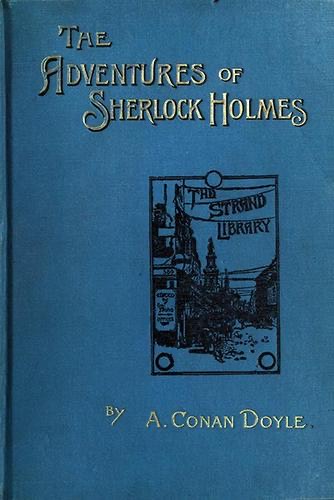
I understand it’s a very complicated topic. The whole, response of the British culture to Conan Doyle’s words. It’s not a yes or no, answer.
So, It’s not a yes, but I believe, I mean, I think that we have to realize that first of all, Doyle gives the impression throughout his at our life, he wanted to be seen as a, a serious English gentleman. Of course, he was not English at all. He was born in Scotland. His parents were both Irish. All his all his family were really Irish. They were Scottish. There was nothing English in them at all. And, I think that’s something also that’s worth exploring. He was an outsider. An outsider.
An outsider, really. But I think I think what makes him so special is that he really he didn’t care about being the outsider. He wanted to express himself. He felt good about what he was, and he didn’t try to adjust into the norms of the current society. No. He didn’t. Although he was, I think right at the beginning, you asked why he didn’t want to be called Sir Arthur Conan Doyle. He was made a knight. He was knighted, so he could be Sir Arthur Conan Doyle because of his support for the British in the South African wars. Anglo South African wars. He was an imperialist. He believed in the empire, but also he was not a racist. And he hated the racism that he encountered within British society.
He made some very coarse comments about the Belgian operation, in the African colonies, if I’m not mistaken.
Yep. You’re you’re absolutely right. He was shocked at what’s happening in the Congo, the Belgian Congo. And he, yeah.
I mean, he was a man of his times, of course. And I think if you’re Chinese, you might think, well, he is racist. You see what he is saying in some of the Sherlock Holmes stories about opium tents in London? But actually, there were opium tents in London.
But, you know, essentially, he judged a person by their character and not by their color of their skin. And and that approach at the time was very, very different. And I think that just adds up to his magnificent personality.
So, I was doing a little bit of research, and I found out the house in 221 B Baker Street is listed as grade 2 by the government. But, Sir Arthur Conan Doyle’s own house at Andershaw was not considered as a grade one and the report stated that the house was architecturally notable and that Sir Arthur Conan Doyle was not at the same standing as Charles Dickens for instance. And I thought what do you call this? It’s the vindication of literary humiliation. It’s an insult towards Doyle. And I read some of your own articles that and you said that even you have been asked some very abusive questions about Conan Doyle. What creates this behavior towards the author? Like, why does this happen?
Why does it cause such rage sometimes? I think it’s because it’s because people, become so enthusiastic about the character of Sherlock Holmes. They want to believe that he really existed. And, you know, there’s a huge, Sherlock Holmes world out there. There’s, like, online, there are games and everything. People dress up as Sherlock Holmes or characters in Sherlock Holmes books. There are just so many people I’ve met who want to believe that he exists. And therefore, the only way to really keep that, idea going is if you demean his creator. If you pretend that his creator was really doctor Watson. And it’s a very strange phenomenon.
His children had to deal with it. They, one of his sons, Adrian, got very, very angry about this whole, all these Sherlock Holmes societies and, the Baker Street irregulars. He just couldn’t understand how could people, believe that Sherlock Holmes is real. So, the second thing is that, there was a lot of snobbery towards crime fiction. And Charles Dickens and other authors were considered much superior. He was too popular. The same thing has happened with JK Rowling in Harry Potter. Huge success.
But it always hinders the rest of the work in a way.
Yeah, and it is not considered serious literature. Okay. As far as 221 b, Baker Street never existed. It’s now the Sherlock’s home museum. The actual house is owned, I think, by a Kazakh.
So, we’re done with this chapter, and I want to talk a little bit about promotion in the advertising business regarding, fictional characters. So we saw James Bond, accompanying the queen herself to the opening ceremony of the Olympic Games. We didn’t see this with Holmes, but we did see Cumberbatch in the introductory video for the Olympic Games. Was that a hidden message or an implication?
I don’t think it was a hidden message. I was surprised, that Sherlock Holmes was not part of the opening ceremony of the London Olympics. And research shows that the fictional character that most, people around the world connect with London is Sherlock Holmes. It’s not James Bond.
But I thought the James Bond thing was very good. And, but, no. I don’t think it answers your question. You know, I don’t think there was any hidden message. And by the way the official reason that Arthur Conan Doyle was knighted, was made to Sir Arthur Conan Doyle was, as I said before, because he supported the British government in the South African wars. But actually, the real reason we don’t know is because the king adored Doyle’s stories. So he insisted that, Conan Doyle should be knighted.
So next question is that, if someone ever claims that Sherlock was a real person, his reincarnation must be Brett. You know, and we’re talking about a very controversial figure, an amazing actor, but, you know, with a nervous laugh, a bit bipolar, heavy smoker, other, you know, disorders, and also a lot of classical music. Did you ever meet with him? Have you seen the series, first?
I certainly saw the series when I was growing up. And, my step grandmother, who was Conan Doyle’s last child, she thought Jeremy Brett was the best, and she knew him well. And he used to visit her. I saw her in a flat in Quebec Square in London. And, unfortunately, although I also often visiting my grandmother, I never met Jeremy Brett. But, I think he was the best.
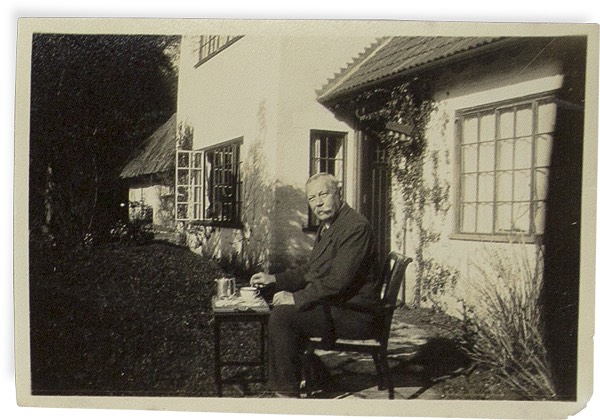
I think Benedict Cumberbatch, in that version, I love it. I think it’s really good. But I think in, Conan Doyle himself, like his daughter, would have thought, yes, Jeremy Brett was the best. Yeah. So I heard so much about him, and I found out that, well, that he was such a great such a great person, like, with such a strong sense of empathy that when he found out that the series was watched by children, he asked that his character would stop abusing drugs, while on set. And Yeah. Because he wanted to give the right impression to the public. So I think this just adds up to his personality.
Yeah. Which, the really great actors should do. And, also, I don’t know whether my step grandmother had any influence on him, but, she certainly didn’t like the way that, so many television series and copies of Sherlock Holmes books and things, dwelled on the drug taking. It was, she felt it was out of proportion with the stories that her father wrote. It was getting a bit excessive with, you know, getting a bit excessive.
Yeah. Okay. So, the Swedish, telecoms expert, Matias Berstold, says that every era has its own icon. And I think it’s fair to say that the 2000 era, has Cumberbatch as its icon. And you talked about him, just now. And, well, what were your thoughts before giving away the copyrights for the series? Did you quickly realize that it would be such a success?
No.We didn’t. We, we negotiated the contract. We already knew he was a very good actor. We trusted the film studio. But, also, to be very honest with you, Panayotis, we did not, and we’ve never felt, certainly, while I’ve been running it, the estate has never felt it’s our job to approve or disapprove of who might be acting. We’re not censors. That’s not the case, I must say, with my step grandmother and her brothers. They did try and control. But we thought, no. Sherlock Holmes is already out there in the world, and every generation, as that Swed said, every generation should interpret.
Yeah. No. I understand because there are so many versions, and it has been played so many times that you just can’t control everything after a certain point.
No. I mean, there’s I can tell you there are several, incarnations of Sherlock, which we hate. I’m not gone tell you which they are. But we are licensed to you know, we agreed to it. Frankly, I’m very glad we no longer have the copyright partly for that reason because people always thought we did control the accounting term shortcuts, but it’s absurd.
You can’t do that. But I think that at least you try and maintain the image, you know, like, keep it respectful. Don’t let people make a mockery out of the character. But yeah
But I guess that, you know, people have the freedom to express the character in the way that they want to.
Yeah.
I want to talk a little bit about the Hound of the Baskervilles. It’s considered as the jewel in Doyle’s work, but Pierre Bayard, a professor of literature, in his book, reopening the case of the book, claims that Sherlock was wrong, and that he didn’t find the real killer, and the killer got away.
Have you read the book, and is it possible that Doyle or even Holmes, because some believe he is real, would make such a mistake?
There are lots of mistakes, in the Sherlock Holmes stories. I think I read it as a boy, and I read it again about 6 or 7 years ago. I mean, there is a whole Sherlock Holmes industry, I mean that industry, of trying to find mistakes. But you’ve got to realize, as I said in the first part when we spoke before, that the second to last story he wrote, he wrote it in one day, in 1926. One day. It’s not a very long story, but how accurate do you think it’s likely to be? You try and write a story in one day.
Oh, trust me. I’ve written so many essays for school, and yeah there is no way I could do that. (laughter)
The thing is that I have the opportunity to go over them time and time and again, and then, you know, there’s always something missing. So Exactly. I think that the some of the earlier stories, he took much more care over. And the Baskerville, of course, came after, he killed Holmes and Moriarty and the Reykjavik Fall. So that after that. And we know that he saw by then, he simply saw Sherlock Holmes as a way to make lots of money and as a way to keep him famous. By being famous, he was influential. But, frankly, his heart was not in it. And I’m not surprised people find mistakes.
So, his relationship with Sherlock was purely professional.
So, I want I want to go back to spiritualism that we talked about the previous time. Doyle and Holmes also appear in solved cases. And, you know, and I got angry when I saw this side of us briefly, the way that it’s been portrayed, because I thought it was a trick for attraction. But after research, I realized it was not just that. I also found out something else. At the time of Doyle, science was beginning to evolve as well. And there was a scientist. I think he was German. But he talked about the 5th dimension, Possibly the subclass of another dimension. So is it possible that Doyle was so ahead of his time that he in a way complied with science? That he was aware that his belief is not irrational, that there are actual claims supporting it.
That’s almost certainly true. Like, a lot of people forget, obviously, not you. Doyle was a scientist. Doyle was a medical professional. He was very interested in all sorts of areas of technology. Do you know that he was an investor, and supporter in 1912, just before the First World War, in the first electrical driven bicycle?
Ah, I knew he was a cyclist, but I didn’t know about that.
He wasn’t a very good driver. He drove over his brother for a start, but, he loved cars. (laughter) He loved machines. As I say, he invested in innovation. So yeah, he was a scientist. He was fascinated by technology and intellectual ideas. He was very interested in spiritualism from an early age, and it wasn’t something that suddenly hit him.
A lot of people think, oh, yes. His first son, died at the end of the First World War, and he wanted to get back in touch with his son. This is true. But, actually, he developed an interest in in the possibility of speaking to the dead a long time before that. But he came to it as a scientist.
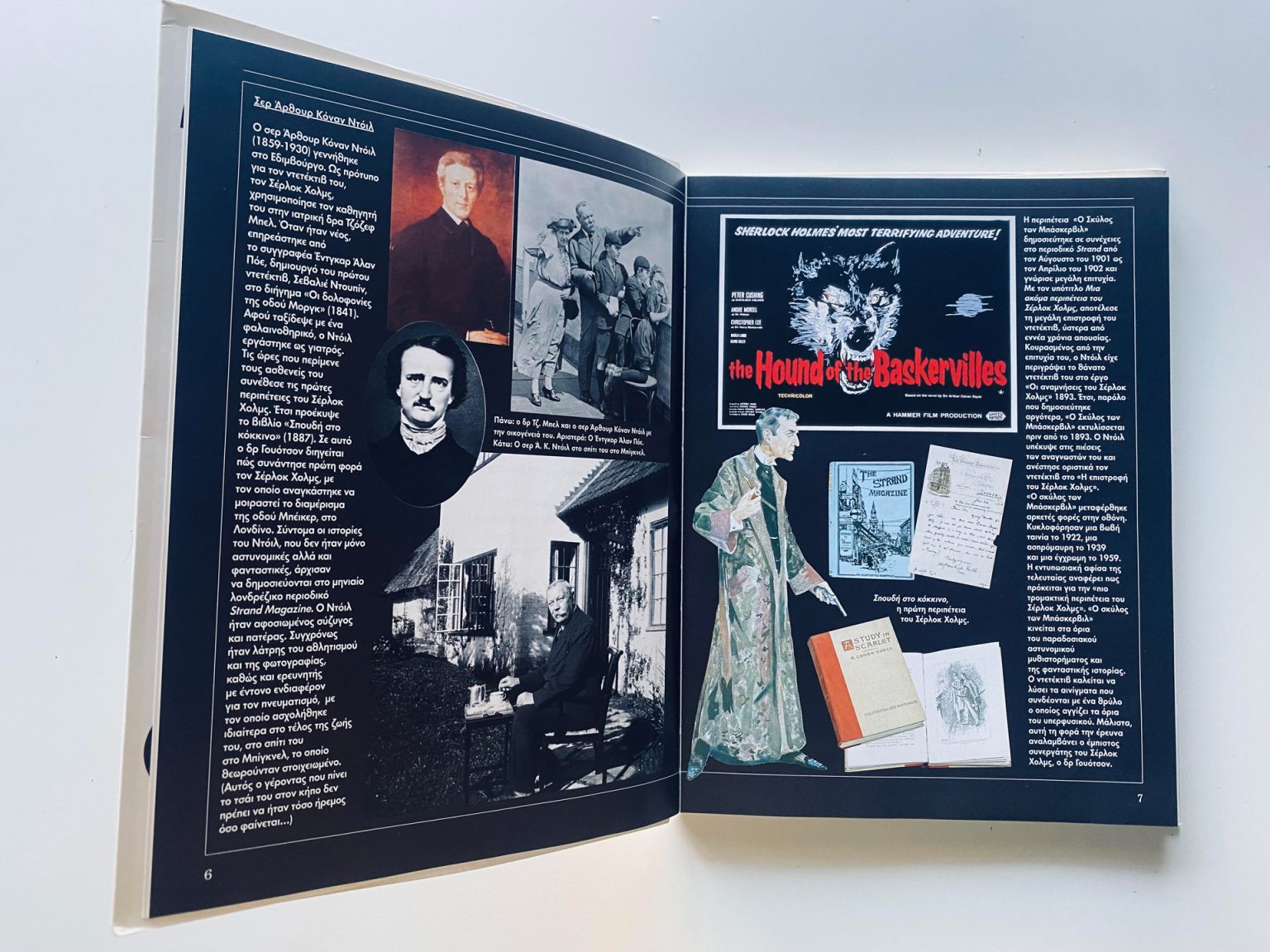
So if you don’t mind me asking, so this passion occurred at a very young age, but, do you know what caused him to be so interested with spiritualism?
Well, I think partly because he’d been brought up as a Roman Catholic. He went to a Jesuit school. He hated the school. He hated the, very, outdated educational system. And religion, he completely, if he ever believed in God, he suddenly stopped believing in God after he attended this school. And so in a sense, he was a young man looking for another different religion, but looking for a new way to explain the world. He believed entirely in Darwinian theory of evolution. And so for him, it was an alternative belief system, if you like. And that started in his school days.
Much to his mother who was a strong Roman Catholic, that must have caused some fights, but, yeah, we won’t get into that.
So many people believe that Doyle was ill. Some assume it was Alzheimer’s 10 years before he died, but I read on your site that the illness started years before. And how did this affect the latter stages of his life and his work?
Well, there’s a lot of discussion about, how mentally capable he was towards the end of his life. And I think that is because a lot of people were shocked by his, belief in spiritualism, by his belief in the Knottingley fairies of these, 2 girls in Yorkshire and Northern England. You know, they took photographs. I’ve seen these photographs. I’ve got them upstairs here. I would never have believed them. It’s obvious that they’re fake, but he wanted to believe. And a lot of people, made fun of him and said he’s ridiculous. How can the creator of Sherlock Holmes, believe this nonsense? And I think a lot of them felt that this was proof that he was becoming ill, yeah, and had dementia of some short sort or something.
But you look at his work. He continued to produce Sherlock Holmes stories. He continued to write Professor Challenger stories, Gerard stories. He worked incredibly hard And, you know, up till the last year of his life.
And, like, my perception of this situation is that, you know, religion and belief are such abstract concepts that, you know, we cannot punish people or stigmatize them for believing. For me it just proves how human he was. Like, it just highlights his human side because every single person has the need to believe. We need this external support that we cannot explain. I don’t think that this would cause, you know, humiliation or derogatory comments. It’s just something that makes him human, that even a genius like Doyle had such a human side.
Yeah. I agree. And, I think, yeah, I think the problem is that he was perceived as such a rational person. He was a scientist. He was interested in technology. You know, his most famous creation was Sherlock Holmes, totally rational. So he was thought to be this utterly rational man. But you look at the stories of Sherlock Holmes, the last case bookcase book of Sherlock Holmes, those last 10 stories. There’s a huge amount of emotion in those stories. I think that makes them less effective, but that goes to show a writer who was a very emotional man. Here’s something which there’s some disagreement about, but when he looked after his dying first wife, he’d met his second wife already. But I do not believe he had sex with his second wife until she married him. A lot of people don’t think that’s true. But that was the kind of guy he was.
He laughed passionately. He was enthusiastic for, so many things. He was a very emotional guy. And yeah, I think this proves that he also values loyalty.
So, another topic is that experts believe that, new additions of Agatha Christie, Diane Fleming, will remove potentially offensive language from their works. And at one at one point, there was also a question about Doyle’s Study in Scarlet, you know, regarding his position, on the Mormons. And what do you think about these cancel cultures? The tendency to alter works just because, because times have changed, we tend to consider some works offensive.
I find the cancel culture very, very stupid, very worrying. I mean, lots of people have said, oh, what do you think about, you know, Doyle was a racist, was this, was that. Sure. You look at some of the things. I think as I said to you before, the Chinese depictions don’t come out looking very good, in some of his works. But, those were the times. You can’t try and remove what was happening at the time. No. I think the cancel culture is a cancer and should be stopped.
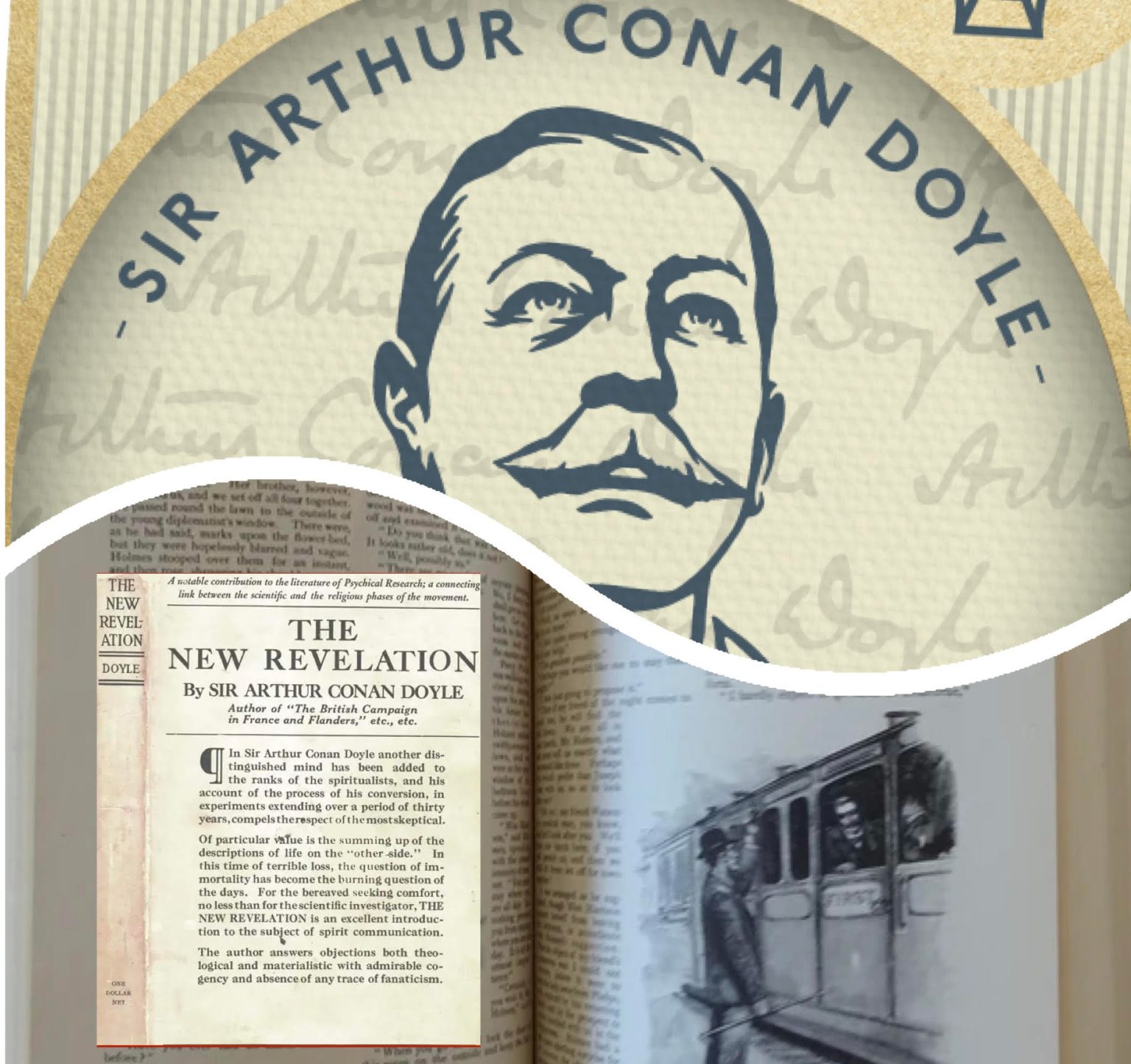
So, you know, we talked so much about icons, but I also would focus on other characters. If I remember well last time, you talked to me about, Brigadier Gerard. And I also read a lot about Professor Challenger. And, like, how do these characters, how are they different from Sherlock? And can they fascinate the public with the right projection and promotion, just like Sherlock did? What do you think?
I think they can, but not ever to the extent of Sherlock Holmes. And Sherlock Holmes has become probably the most famous fictional character the world, and that is so, so powerful. Now we at the estate, we are, we hope that there’ll be a television series of Professor Challenger soon in America. We hope that we put him on Wikipedia out in the UK. We are confident that these will get lots of publicity.
But let’s face it. Sherlock Holmes is unique. And that word is overused, but there really is nobody else like Sherlock Holmes. And professor Challenger, yes, there are, crazy professors, you know, lots of fictional characters like that. Yeah. Certainly, there are lots of, stories about military people behaving in a funny way. I think those stories, the first challenger stories are very good. But, no, I think, truly, Shark Holmes is unique.
And something else that I just remembered is that, I don’t remember who the character was exactly, but they described him as the ideal standard for an English gentleman?
There’s the boxing one, which is in Rodney Stone, which I think is a very, very good, story. But he would not be there. He’s not. I can’t think of who it is. It may be one of his history books.
Okay, I have one last question. Well, it’s not exactly a question. It’s a discussion or a suggestion, but it’s, you know, Sherlockians are fans with decades of history. I’m sorry for calling you that, but you understand why. Maybe the way to attract new audiences is to use a technique called testimonials. This one is using figures like celebrities to convince the public that, you know, they must buy this product and it’s entertaining, stuff like this. Such as Taylor Swift, for example. I know that it sounds such a bit excessive But what I’m thinking is, what if, the Doyle state will create, a merch, you know, like a merchandise, like a swatch with, the Holmes badge on it or a clothing brand. I know it sounds funny, but it’s because young people have stopped reading. And I truly think we must find another way to get them back into this wonderful world of Sherlock Holmes.
Well, I agree with you. But I’m very, very keen that young people continue to read. I think as we can see from Harry Potter, there’s a lot of them do. And, of course, a huge number of them, of young people, you know, they’re writing and reading, but it’s not necessarily fiction. But , of course, a vast number of them is playing games, even more now than watching movies or television. And there are loads of games.
The estate also has many trademarks like the Mont Blanc pen.
Well, I sat down with the designer, and we worked out exactly the design of the pen. So, there are, there’s a Chinese company who produced a, a Holmes pipe for vaping. It’s not selling very well in China. China. So there have been attempts of that kind.
Oh, so it’s an actual vape. Well, unfortunately, people my age vape more than they read. (laughter)
But I think the way, that a lot of young people like you, read is if they see a television series, if they play a game, if they see a movie, they may go back to the stories. The problem though is that the original stories now are written in a language, which is, if in English anyway, it feels very old fashioned. And what I’d love to know is when you read the Sherlock Home stories, did you read them in English or in Greek?
Look. I was very young at the time, and I hadn’t learned English yet. But to be honest, I have a friend that reads Holmes now, and, she reads them as part of her English literature course. I have read some pages, I’ve seen the language, and it’s like the first time I read Shakespeare because I do Shakespeare in my English class, and it’s just very difficult, like, especially for non-English speakers.
Exactly. I’m glad you’ve said this because I’ve heard it from several people. I used to live in Japan, and there are many, many, many Sherlockians in Japan. And I’m sure that in Japanese and in Greek, the language is not the same as it’s not equivalent to the English.
Yeah. Because I think in a way, you can’t replicate Doyle’s expression.
Yeah. Exactly. And so, Doyle’s original stories may be more accessible when translated for children, young people, than the original. And the reason that in in in this country and in America, English speaking countries, that Sherlock Holmes is mostly the new books.
Not the original Sherlock Holmes, but the new stories, the new books, and people, because they’re reading up to date English.
Behind me, I’ve got books, Holmes books, written for children, but written 10 years ago, 5 years ago, which we’ve licensed, we’ve supported because that introduces young people to Sherlock Holmes.
I see. Okay. That was my final questions. I just want to express my gratitude. You know, it’s such a huge honor for me. And as a kid growing up and being such a huge fan, all this experience is a gift, as I mentioned in the email. I just really want to say thank you, you know, because it hasn’t been easy what I have been doing with the project. I’ve had a lot of rejections, but having the Doyle state and you, devote so much time, it’s just perfect.
It was a pleasure.
Mr. Pooley admitted that “ Ι had an Wow! feeling when I first handled (very carefully) Doyle’s original letters. But the Wow! was louder when I saw and touched the blotting paper which had been on his desk the day he died in 1930. Ostensibly, it has little financial But to touch something which he must have used time and again to dry the ink on his letters and manuscripts (you can still see many signatures of his in mirror form) still gives me goose bumps.”
I felt something similar while conversing with Mr. Pooley.
I came so close with Doyle and Holmes, and to phrase it as the writer would have liked, it was like my reincarnation had spent a lifetime with them. (Of course, this suggests Holmes was real, a misconception that truly angered Doyle). It was a truly unique feeling.
I have to say that although Mr. Pooley isn’t a blood relative of Doyle, he definitely has his aura. He is an amazing converser, with great humor and a unique ability to present his perspective. He was polite and encouraging to me and this project from the first moment I reached out to him.
